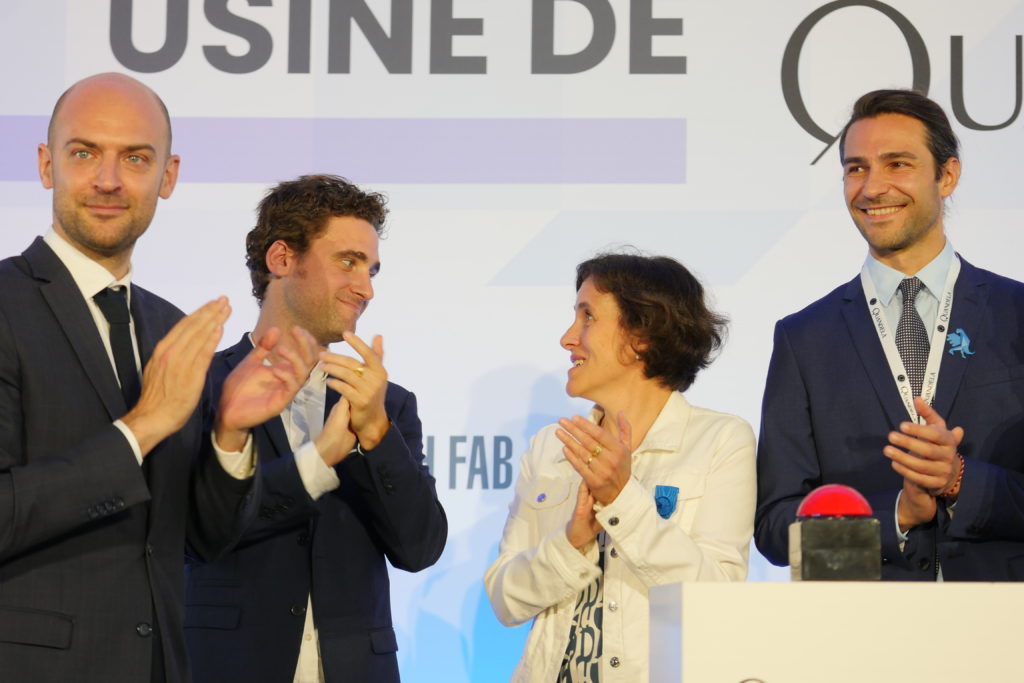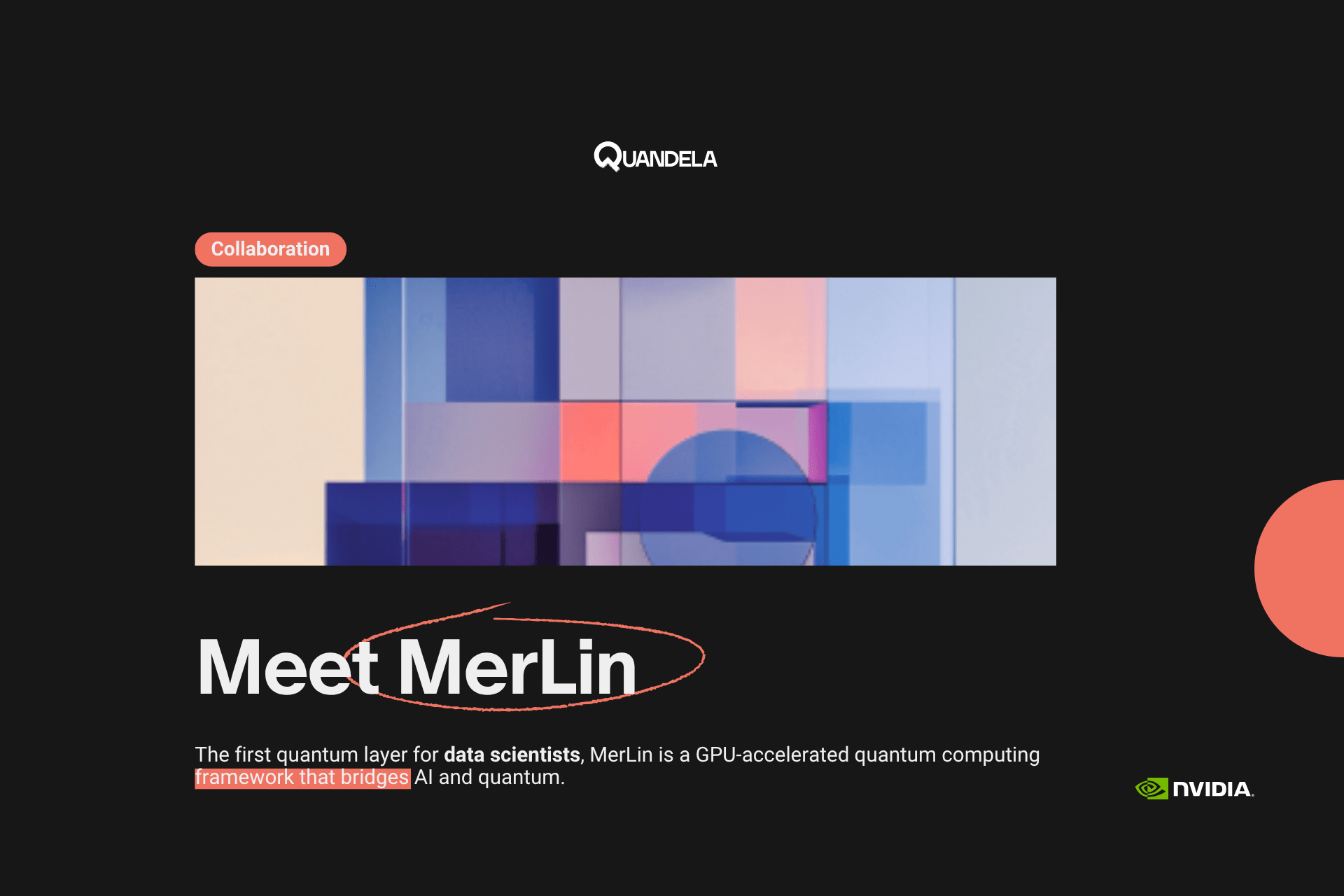Paris, June 26 st , 2023. Quandela, leader in optical quantum computing, has just inaugurated its first factory for manufacturing quantum computers in Massy (Essonne, France). The grand opening took place on June 20th , 2023, in the presence of Jean-Noël Barrot, Minister for Digital Transition and Telecommunications, Nicolas Dufourcq, CEO of Bpifrance, and Alain Aspect, 2022 Nobel Prize laureate in Physics and member of Quandela’s scientific board. It marks a major milestone for the company as it embarks on its industrialization phase.
The opening represents a remarkable achievement for Quandela and positions the company at the forefront of the quantum computing industry. With its new production capabilities and stringent quality processes, the company is equipped to meet industrygrade standards.
Quandela, the first actor in the European Union – and to date one of the global few – to make its quantum computers publicly available on the cloud, continues to push boundaries. In the coming months, Quandela will deploy two additional quantum computers on the cloud and will be expanding its portfolio of cloud-based quantum solutions.
Thanks to its new factory, Quandela will be able to scale up its production and supply quantum computers, both for on-premise sales and for its quantum cloud platform, enabling increasing number of industrial players to leverage this technology for addressing industrial use cases.
“Having released our first generation of quantum computers on the cloud, the next logical step for Quandela was to move towards the industrialization of these computers. Thanks to this factory, located on the doorstep of the Plateau de Saclay, we are confident in tackling the upcoming challenges to further increase the computational capabilities of our computers and the number of industrial applications.” Valérian Giesz, co-founder and CEO of Quandela.
” I’m delighted to announce that Quandela is laureate of the France 2030 “Première Usine” call for projects, operated by Bpifrance. The company, now a major European player in photonic quantum computing, perfectly embodies our strategy of reindustrialization, based on support for innovative technologies developed by startups and industrial SMEs. This CNRS spin-out has made the transition from the laboratory to the factory over a period of 5 years, with Bpifrance providing support on 8 occasions as the project developed. It’s the perfect example of the deeptech continuum we’ve been creating in France since 2019.” Nicolas Dufourcq, CEO of Bpifrance.
“The inauguration of this first quantum computer factory marks Quandela’s scaling-up from fundamental research to industrialization. Through various programs such as FT2030 and the France 2030 “Première Usine”, the French government is supporting Quandela at every stage of its development, in particular through a €9.5 million grant. We’re very proud to have such high-quality researchers and entrepreneurs in France, who will help us make France a deeptech nation.” Jean-Noël Barrot, Minister for Digital Transition and Telecommunications.
Finally, in line with its technological roadmap, this new factory will also enable Quandela to develop more powerful quantum computers for its customers. In addition to the factory inaugurated today, Quandela is finalizing the installation of its cleanroom on the Plateau de Saclay, where semiconductor components for photonic qubit generation are produced.
This new milestone confirms Quandela’s leading position in photonic quantum computing in Europe.
About Quandela
Quandela, entreprise leader dans le domaine du calcul quantique, propose des solutions de niveau industriel. Quandela conçoit, construit et fournit des systèmes quantiques prêts à l’emploi pour les datacenters, des processeurs quantiques accessibles via le cloud, et des services d’accès aux algorithmes.
Fondée en 2017 par la professeure Pascale Senellart, directrice de recherche au Centre de nanosciences et nanotechnologies (C2N) du CNRS, Niccolo Somaschi et Valérian Giesz, experts de renommée internationale en physique quantique, Quandela emploie plus de 100 collaborateurs de 20 nationalités différentes, en majorité des chercheurs et des ingénieurs en optique, algorithmes et sciences de l’information.
Quandela s’engage à rendre l’informatique quantique accessible à tous pour relever les défis industriels et sociétaux les plus complexes.
Pour en savoir plus : www.quandela.com
GB
Quandela, a leader in quantum computing, specializes in industry-grade quantum computing solutions. Quandela designs, builds, and supplies datacenter-ready quantum computing systems, cloud-accessible quantum processors, and algorithm with industrial value.
Founded in 2017 by Professor Pascale Senellart, Research Director at the Centre for Nanosciences and Nanotechnologies (C2N) at CNRS, Niccolo Somaschi and Valerian Giesz, internationally renowned experts in quantum physics, Quandela currently has over 100 employees from 20 different nationalities, mostly researchers and engineers in optical, algorithm and data science.
Quandela is committed to making advanced quantum computing accessible and beneficial for all, empowering innovators to solve the most complex industrial and societal challenges.
About France 2030
The France 2030 investment plan: – Has two ambitions: transforming key sectors of our economy for the long term (healthcare, energy, automotive, aerospace and space) through technological innovation, and positioning France not just as a participant but as a leader of tomorrow’s world. France 2030 supports the whole innovation life cycle through to industrialization: from carrying out fundamental research and fostering new ideas to producing a new product or service.
– Is unprecedented in terms of scale: €54 billion will be invested to help our companies, universities and research organizations achieve successful transitions in these strategic sectors. The aim is to provide a competitive response to the challenges posed by tomorrow’s world in terms of the environment and economic attractiveness, and to bring through future champions in the sectors in which we excel. France 2030 is defined by two cross-cutting targets, allocating 50% of its expenditure to decarbonizing the economy and 50% to funding emerging innovators without carrying out any environmentally damaging expenditure (in line with the “Do No Significant Harm” principle).
– Will be implemented collectively: designed and deployed in conjunction with economic, academic, local and European participants, which will help determine its strategy and key initiatives. To receive state support, entities developing projects are invited to submit applications via procedures that are open, demanding and selective.
– Is overseen by France’s Office of the Secretary General for Investment, on behalf of the Prime Minister.




